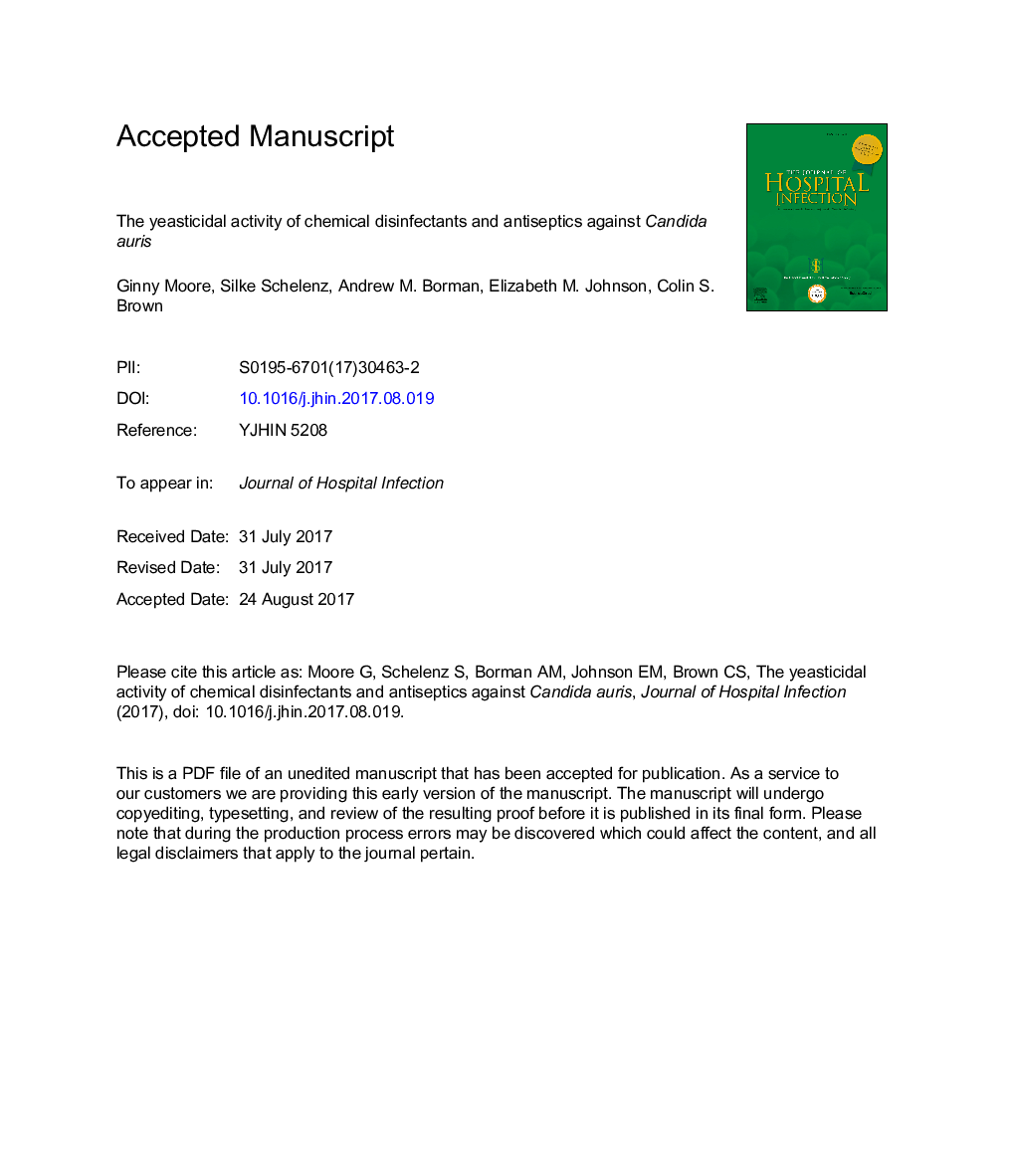| Article ID | Journal | Published Year | Pages | File Type |
|---|---|---|---|---|
| 8740252 | Journal of Hospital Infection | 2017 | 15 Pages |
Abstract
Candida auris appears to be transmitted readily between patients, yet information regarding the efficacy of environmental disinfection and skin decolonization is lacking. A quantitative suspension test (EN 13624:2013) was used to evaluate the yeasticidal activity of different chemical disinfectants and antiseptics against C. auris and Candida albicans. When tested in suspension, both a chlorine-based disinfectant and iodine-based skin antiseptic were effective against C. auris, suggesting that their use could reduce environmental contamination and skin colonization, respectively, if applied appropriately. Chlorhexidine-based products may also be effective. However, in this study, activity depended on formulation, specifically the presence of isopropyl alcohol.
Related Topics
Life Sciences
Immunology and Microbiology
Applied Microbiology and Biotechnology
Authors
G. Moore, S. Schelenz, A.M. Borman, E.M. Johnson, C.S. Brown,
